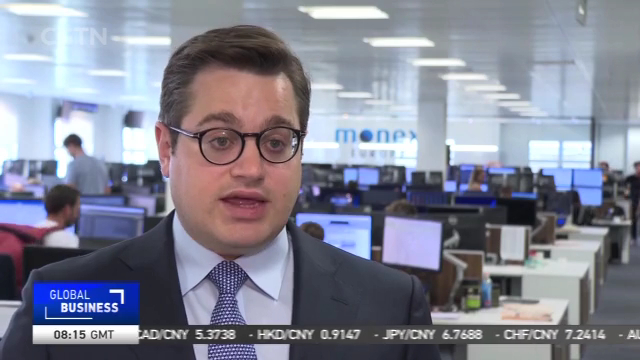
17:09, 03-Sep-2019
Hong Kong Economy: Plunge in retail sales increases risks of recession
Updated
17:19, 03-Sep-2019

Ongoing protests continue to roil Hong Kong and the city's economy has been suffering. Analyst say that there's certainly a risk that the economy will fall into a proper recession. Our correspondent Xi Jia has more.
Hong Kong's economy has had its weakest growth in a decade according to new statistics from the Hong Kong SAR government, showing the economy only grew by 0.6% in the second quarter. A plunge in retail sales in July increases the city's risks of falling into a recession.
RANKO BERICH MONEX EUROPE "It's certainly a risk of recession, you can see that in leading data like retail sales, you can see a huge slowdown in investment, so there's certainly risk the economy as a whole will fall into a proper recession."
Retail sales in Hong Kong fell 11.4% in July, a bigger decline than the previous month's 6.7% drop. According to Bloomberg Economics, GDP data for the third quarter is expected to confirm that the city is in a technical recession.
RANKO BERICH MONEX EUROPE "Retail sales contracted more than 11.4% year on year in July, and looking in the details of that number you can really see a slowdown in tourists spending, so for example, jewelry sales, which is a good proxy for the spend of mainland Chinese tourists in Hong Kong, fell by more than 24% year on year in July, so the economy as a whole is slowing not only because of a slower consumer spending from tourists and so on, but also lower investment for business due to the uncertainties that created by the protest and a risk of a crackdown from mainland authorities."
According to analysts, visitor arrivals in July fell 4.8%, reversing Junes' 8.5% rise. The number of visitors from Chinese mainland also reversed a previous gain to fall 5.5% in July. The drop became severe right after the protests in Hong Kong International Airport in August. Analysts also say retail sales could be a function of observing consumer confidence on a whole because of wider regional factors and also whether the protests escalate or there is some hope of a resolution.
SITEMAP
Copyright © 2018 CGTN. Beijing ICP prepared NO.16065310-3
Copyright © 2018 CGTN. Beijing ICP prepared NO.16065310-3